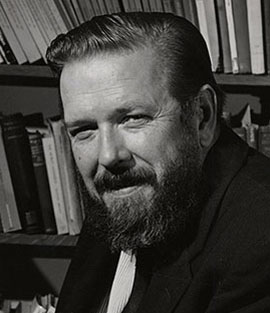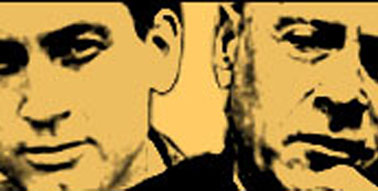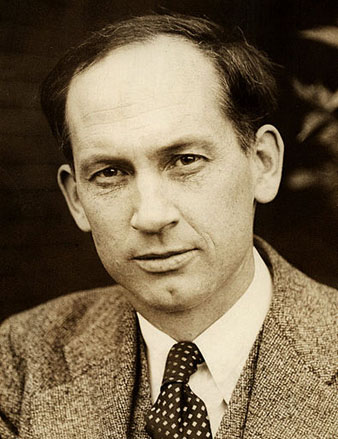November 4 — November 8 : Seven key dates in Canadian history, waiting for the troubling US election of 2016
Nov 4th, 2016 | By Counterweights Editors | Category: In BriefBack in 1969, the year Richard Nixon first assumed office as President of the USA, the old-style Canadian conservative George Grant offered “perspectives on what it is to live in the Great Lakes region of North America,” in his short book Technology and Empire.
Without in any way pretending to equal or follow George Grant’s adventures (of course, of course), here are some at least similar subject-related perspectives on the same place not quite 50 years later, with an increasingly troubling US election less than four days away.
As it comes to an end, what the long 2016 US election campaign has most obviously induced in anyone already in Canada is gratitude for living so close to the USA as to enjoy most of its advantages, without having to face its current political conflicts (at least not directly, or in quite as strident a form).
Similarly, coincidentally or otherwise, the remaining dates of the days leading up to and including the 2016 US election have a number of distinctions in Canadian political history. Taking quick note of seven particular dates of this sort is another way of being grateful for Canada in troubled times, in the most northern regions of North America:
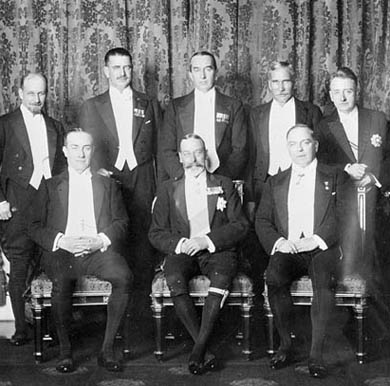
George V (front centre) with the prime ministers of the mother country and the self-governing dominions at the Imperial Conference of 1926. At this point the dominions were “white” – except for South Africa where the electorate was largely white. It was not until the brief histories of the “brown dominions” of India and Pakistan in the late 1940s that the real-world multiculturalism of the old anglophone global empire started to gain political recognition.
(2) THURSDAY, NOVEMBER 5, 1981, OTTAWA : PM Pierre Trudeau and Nine Provincial Premiers (all except sovereigntist premier of Quebec, René Lévesque) sign the “Kitchen Accord” to “patriate” Canada’s constitution from the United Kingdom, with federal-provincial amending formula … at last. (Note Lévesque had led the Oui side in the May 20, 1980 Quebec sovereignty referendum, in which 59.5% of the interested people of Quebec voted Non.)
(3) MONDAY, NOVEMBER 5, 1894, OTTERVILLE, ON : Birth of “Canada’s first and perhaps only genuine intellectual,” Harold Innis. Â Early discoverer of the human geographic meaning of Canada as a “northern North America” not dependent on the old British empire – a concept later brought to practical political life by John Diefenbaker, Lester Pearson, and Pierre Trudeau.
* * * *
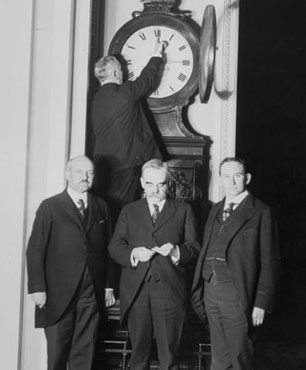
“Ohio Clock in the US Capitol being turned forward for the country's first daylight saving time in 1918.”
(4) SUNDAY, NOVEMBER 6, 2016, MOST OF CANADA AND UNITED STATES : Â Daylight Saving Time ends 2 AM in Canada (except most of Saskatchewan and a few other places). And in : “Most areas of the United States … the exceptions being Arizona (except for the Navajo, who do observe daylight saving time on tribal lands), Hawaii, and the overseas territories of American Samoa, Guam, the Northern Mariana Islands, Puerto Rico and the United States Virgin Islands”
(5) SATURDAY, NOVEMBER 7, 1885, CRAIGELLACHIE, BC : Ceremonial  Last Spike driven in Canadian Pacific Railway – reviving northern east-west transcontinental reach of first Canadian resource economy of the fur trade. As later studied in Harold Innis’s first book –  a publication of his University of Chicago PhD thesis called A History of the Canadian Pacific Railway (1923), and in Pierre Berton’s The National Dream (1970) and The Last Spike (1971).
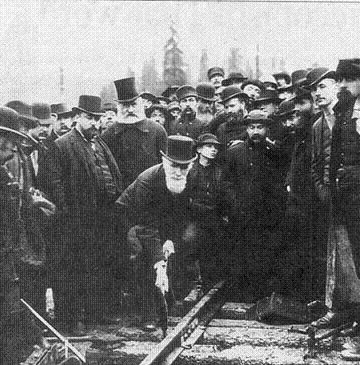
Fur trade and railway corporate executive Donald Smith drives the last spike on the Canadian Pacific Railway at Craigellachie, BC, November 7, 1885.
(6) TUESDAY, NOVEMBER 8, 2016, UNITED STATES. Election : Clinton or Trump as president ; who controls Senate and House ; gubernatorial elections in 12 states and two territories, and legislative elections in 44 states ; local mayoral elections in such places as Baltimore, Honolulu, Milwaukee, Richmond (Virginia), Sacramento, and San Diego, etc, etc. ; grand total of 155 so-called ballot measures in 34 states as well – Â including “Colorado Amendment 69, which would create the nation’s first single-payer healthcare system” (or broadly what we already have in Canada, which started in Saskatchewan, on July 1, 1962).
(7) SATURDAY, NOVEMBER 8, 1952, TORONTO.  Harold Innis dies of prostate cancer. He was : a rural Alberta schoolteacher in his youth ; a wounded First World War veteran from an Ontario family farm who  married a girl he met in Chicago ; the first Canadian-born Chair of the Department of Political Economy at the University of Toronto ; the first Canadian President of the American Economic Association ; a “hick Baptist” mentor of the hip 1960s guru Marshall McLuhan ; and the angular author of such still-in-print books as The Fur Trade in Canada : An Introduction to Canadian Economic History and The Bias of Communication.
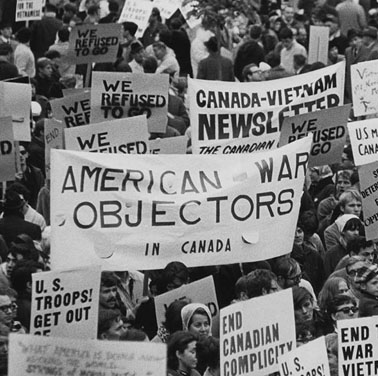
In the late 1960s and early 1970s more than a few US protesters against the Vietnam War moved to Canada. Who knows? If Donald Trump wins on November 8, something similar could happen again. It’s one of the reasons Canada exists.
As the Times Literary Supplement in the United Kingdom explained long ago, Harold Innis is also probably still “Canada’s first and perhaps only genuine intellectual.” (With apologies to … ?????? … Michael Acker? Pamela Anderson? Margaret Atwood? Allison Au? Candice Bergen? Conrad Black? Ashok Charles? Don Cherry? Christy Clark? Céline Dion? Drake? Tom Freda? Sophie Gregoire? Stephen Harper? Mélanie Joly? Tara Kannangara? Wab Kinew? René Lévesque? C.B. Macpherson, Deepa Mehta? Maryam Monsef’? Ariana Nasr? Rachel Notley? Tony O’Donohue?, Michael Ondaatje? Charles Roach? Stan Rogers? Harjit Sajjan? Charles Taylor? Pierre Trudeau? etc, etc … oh and don’t forget George Grant … ).
As to who anyone should vote for this coming Tuesday, November 8, we’d just note the ancient adage : “Canadians always vote Democratic in American elections.” And if there finally is another Brexit-like surprise and Donald Trump does actually win, Prime Minister Justin Trudeau’s Liberal government in Ottawa has already indicated that it intends to significantly boost  the number of immigrants admitted to Canada each year.
